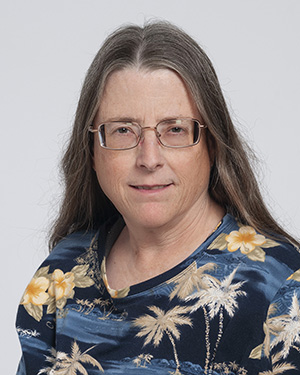Research News
08/08/2018
Dr. Dianne Perez Named ADDF-Harrington Scholar for Alzheimer's Research
The award provides up to $600,000 in project funding over the course of two years, which she will use to evaluate the cognitive effects of a drug she has spent nearly 30 years researching and developing.

Dianne Perez, PhD, Staff, Department of Molecular Cardiology, has been named the Alzheimer's Drug Discovery Foundation (ADDF)-Harrington Scholar for her promising research in Alzheimer's disease (AD). The award provides up to $600,000 in project funding over the course of two years, which she will use to evaluate the cognitive effects of a drug she has spent nearly 30 years researching and developing.
An unexpected discovery
Dr. Perez has spent most of her career understanding the causes of and investigating new therapeutics for vascular diseases. It was an interesting surprise, then, when she discovered that a compound she was developing to protect against cardiac ischemia (reduced blood flow that causes a shortage of oxygen to the heart) had significant benefits on cognition, learning and memory in mice.
How a target for ischemia became a potential target for AD
Dr. Perez's original research focused on understanding the structure and function of a class of molecules called G-protein coupled receptors (GPCRs). Her lab was particularly interested in GPCRs called α1-adrenergic receptors (α1-ARs), which bind to the neurotransmitters norepinephrine and epinephrine. She was interested in these specific interactions because epinephrine causes blood vessels to narrow, which increases blood pressure, and adapts the heart to withstand damage, making it a viable treatment strategy for ischemia. Dr. Perez set out to develop a drug that could imitate and amplify this norepinephrine/epinephrine-receptor binding (drugs of this type are called agonists).
There are three types of α1-ARs, including α1A and α1B. Dr. Perez discovered that overexpression of α1B receptors caused seizures, vascular complications, apoptosis (cell death), and neurodegeneration, while an abundance of α1A receptors had profound cardio- and neuroprotective effects.
Remarkably, the α1A mice had reduced risk of ischemia and cancer, lived 10-15% longer, and showed signs of improved cognition. They exhibited enhanced learning and memory, as well as increased neurogenesis and synaptic plasticity (formation of new neurons and connections between neurons). This finding led Dr. Perez to hypothesize that α1A agonists could potentially be used as a treatment for AD.
Designing a smarter drug
Over the years, α1 agonists have waned in popularity due to serious side effects. Dr. Perez set out to design a smarter drug that could uncouple the cognitive benefits she observed from the potentially harmful effects on blood pressure.
Dr. Perez and her team synthesized one particular compound—dubbed "compound 3”—which did just that. It had the desired effects on learning, memory and brain cell function without raising blood pressure.
Compound 3—an agonist-like compound—is allosteric, which means it affects how norepinephrine and epinephrine bind to and activate the α1A receptor, binding at a different site than normal. This causes more selective binding and signaling. Compound 3 favors norepinephrine binding in the brain and amplifies cAMP signaling (GPCR-triggered signaling pathway) rather than epinephrine binding and calcium signaling throughout the peripheral nervous system, which leads to increased blood pressure characteristic of agonists.
With the support of the ADDF-Harrington Scholar award, Dr. Perez has begun testing compound 3's effects in a preclinical model of AD.
"I am so grateful for this honor," said Dr. Perez. "The ADDF-Harrington Scholar Award helps support research during a critical point in the research continuum—during early phases when scientists are collecting the data needed to secure larger grants and clinical collaborations. I thank the funding organizations for making this project possible, and for helping us to take our work to the next level where we can hopefully one day impact patients."
The ADDF-Harrington Scholar Award Program is a collaboration between the Alzheimer's Drug Discovery Foundation, the only public charity solely focused on funding the development of drugs for AD, and the Harrington Discovery Institute at University Hospitals. The Harrington Discovery Institute is part of the Harrington Project for Discovery & Development, a $300 million national initiative built to bridge the translational valley of death. It includes the Harrington Discovery Institute and BioMotiv, a for-profit, mission-aligned drug development company that accelerates early discovery into pharmaceutical pipelines.
Following this phase of the project, Dr. Perez plans to find ways to optimize compound 3 (which is patented by Cleveland Clinic) before pursuing clinical trials in AD patients.
Photo credit: Harrington Discovery Institute
Want To Support Ground-Breaking Research at Cleveland Clinic?
Discover how you can help Cleveland Clinic save lives and continue to lead the transformation of healthcare.
Give to Cleveland Clinic